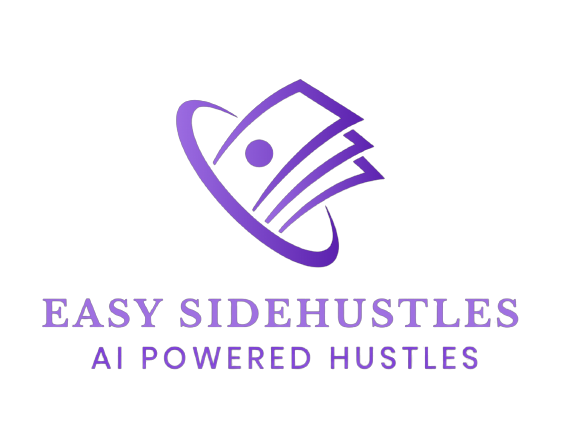Exploring the Advancements in AI/ML Testing Tools: A Comprehensive Overview
The Rise of Artificial Intelligence and Machine Learning
Artificial Intelligence (AI) and Machine Learning (ML) have revolutionized numerous spheres of human life, and testing tools are no exception. As businesses increasingly rely on AI/ML models to drive decision-making processes, the need for effective testing solutions has intensified. In this article, we will delve into the advancements in AI/ML testing tools and explore how they can enhance workflows and drive efficiency.
Understanding AI/ML Testing
Before we delve into specific tools, it is crucial to understand the concept of AI/ML testing. Unlike traditional software testing, which focuses on verifying functionalities and identifying bugs, AI/ML testing aims to evaluate the performance of AI models and ensure their accuracy, reliability, and efficiency. This testing involves assessing various aspects, including model training, data quality, and the suitability of algorithms.
The Emergence of AI/ML Testing Tools
With the increasing adoption of AI/ML models in different industries, the demand for efficient testing tools has grown exponentially. To meet this demand, several AI/ML testing tools have emerged, providing automated and comprehensive solutions. Let’s explore some of these advanced tools and their features.
1. Intelligent Test Data Generation
Accelerating Testing Efficiency with AI-Powered Data Generation
One of the significant challenges in AI/ML testing is the availability of diverse and realistic test data. AI-powered data generation tools leverage ML algorithms to create synthetic data that mimics real-life scenarios. These tools enable testers to generate massive volumes of data for testing, reducing the dependence on manual data collection and enhancing efficiency.
Improving Test Coverage and Accuracy
AI/ML testing tools also provide advanced techniques to enhance test coverage and accuracy. By analyzing patterns in the training data, these tools can identify potential gaps in the test cases. They also offer intelligent test case generation, ensuring comprehensive coverage of the model’s functionalities and minimizing the risk of undetected bugs.
2. Model Validation and Monitoring
Ensuring Model Reliability and Performance
To ensure the reliability and performance of AI/ML models, testing tools now offer functionalities for model validation and monitoring. These tools enable testers to evaluate the model’s behavior through real-time validation, continuously assessing its performance against expected outputs. If the model deviates significantly, testers can promptly identify issues and take corrective measures.
Addressing Model Bias and Fairness
Model bias and fairness have become critical concerns in AI applications. AI/ML testing tools now integrate fairness testing capabilities that help identify biases in models. By assessing different demographic subgroups, testers can ensure that the models’ predictions are unbiased and equitable, mitigating potential risks.
3. Automated Testing Frameworks
Streamlining Testing Processes with Automation
With the advancements in AI/ML testing tools, automation has become a crucial component for efficient testing. Automated testing frameworks integrate with existing CI/CD pipelines or development workflows to ensure seamless testing. These frameworks offer automated model training and retraining, reducing the time and effort required to test AI/ML models.
Facilitating Continuous Integration and Deployment
AI/ML testing tools also enable continuous integration and deployment (CI/CD) for ML models. By automating the testing process, these tools ensure rigorous testing at every stage of the development pipeline. This facilitates rapid iteration and deployment, saving valuable time and resources.
4. Explainability and Interpretability
Demystifying AI/ML Models through Explainability
AI/ML models often function as “black boxes,” making it challenging to understand their decision-making processes. Advanced AI/ML testing tools now focus on explainability and interpretability, helping testers understand the rationale behind the models’ outputs. By providing insights into feature importance and decision paths, these tools enhance trust in AI/ML models.
Interpreting Model Predictions
Additionally, testing tools allow interpretation of model predictions, enabling testers to analyze and validate the models’ outputs. By visualizing prediction boundaries and decision regions, testers can gain valuable insights into model behavior and identify potential risks or biases.
The Future of AI/ML Testing
As AI and ML continue to evolve, so will the testing tools associated with them. Advancements in areas such as autonomous testing, anomaly detection, and reinforcement learning-based testing are already on the horizon. These innovations will further enhance the capabilities of AI/ML testing tools, making them indispensable for businesses.
In conclusion, AI/ML testing tools have undergone significant advancements, providing comprehensive testing solutions that address the unique challenges of AI/ML models. From intelligent test data generation to automating testing processes, these tools offer features that streamline workflows and drive efficiency. By incorporating these tools, businesses can ensure the accuracy, reliability, and fairness of their AI/ML models, enabling them to make informed decisions and achieve better outcomes. So, embrace the advancements in AI/ML testing tools and witness the transformation it brings to your workflows and success in the era of AI/ML-driven businesses.
For more tips and insights on using AI tools to enhance your workflows, visit easysidehustles.biz.


